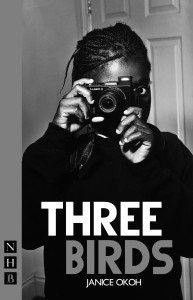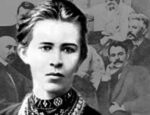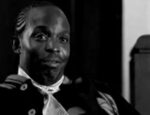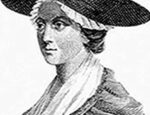Description

Meet Tanika, the nine-year old girl from Janice Okoh’s darkly comic satiric tragedy Three Birds (2011) set in a ground-floor council flat on an estate in Lewisham. In the play three siblings, Tiana, Tione and Tanika are left to fend for themselves when their mother overdoses. Fearing that they will be put into care and separated the two elder children hide their mother’s body and attempt to embalm it.
For homework Tanika’s white middle-class teacher has set her class the task of keeping imaginary journals of the Greek gods. As Tanika, who has been allotted Proteus, explains to the local drug dealer and family friend Dr Feelgood: “Ms Jenkins gave me a rubbish god” (p.17). In Ms Jenkins’ idealizing world view her identification of Tanika with Proteus might allow her not only to predict the future, but also to believe in her ability to change – or perhaps to improve her social standing.
Later Feelgood helps Tanika dress up as Proteus for a school assembly. After fitting her up with a bed-sheet toga he says:
FG: Think something’s missing… She needs to be holding something… You see the future right?”
T: Yeah
FG: A crystal ball. You got something like that? Or a ball. You got a ball? Tennis balls?
T: They could be like eyes. Like extra eyes. (Okoh, 2013 p.63-4)
Just as events are taking a more overtly surreal turn a toga-clad Tanika emerges from her room brandishing two severed dolls’ heads: “What about these? … I couldn’t find any balls”.
Tanika has it in her head that Ms Jenkins is going to adopt her and take her to live with her nieces Daphne and Freyer. Ms Jenkins’ naïve but perhaps well-intended attempts to inspire Tanika to rise from her impoverished background fed Tanika’s hopes of adoption, like Miss Honey’s adoption of Matilda in Roald Dahl’s famous children’s book (1988).
Ms Jenkins breaks it to Tanika that she does not want to adopt her at the same time as revealing her more self-orientated concern that her assembly did not work out as she had hoped:
MJ: I didn’t come here to take you away, Tanika. You didn’t come to school today so I came to see why. (To TIANA and TIONE) She’s Proteus!
By this final exclamation Ms Jenkins reveals the privileged fantasy of her reasoning. She attempts to justify her actions to the teenage siblings by explaining the adult and somewhat esoteric notion that their sister was destined for the role of Proteus. There is, as far as I know, little president for Proteus as symbol of social mobility, but the canny sea-god’s ability to morph into any form does lend itself to such an interpretation. The comic breakdown of communication generated by use of classical mythological reference brings into sharp focus the barriers of education and class that cannot be overcome by good intentions alone.
When the reality of the situation finally dawns on Ms Jenkins, aided by Tanika’s emerging from the bathroom with human eyes in her bloody hands, her former teacherly control and strength fail her and she leaves the tragic scene followed by Tiana’s words: “Go on, get out, you posh c**t! Get out!”
Okoh’s Three Birds was first performed at the Royal Exchange Theatre, Manchester, on 27 February 2013 and then at the Bush Threatre, London, on 20 March 2013. It was directed in both instances by Sarah Frankcom. Okoh’s script won the Bruntwood Prize for Playwriting in 2011 and is available from Nick Hern Books (NHB).
N.b. page numbers given above are from the play script (2013) — see picture for cover.




